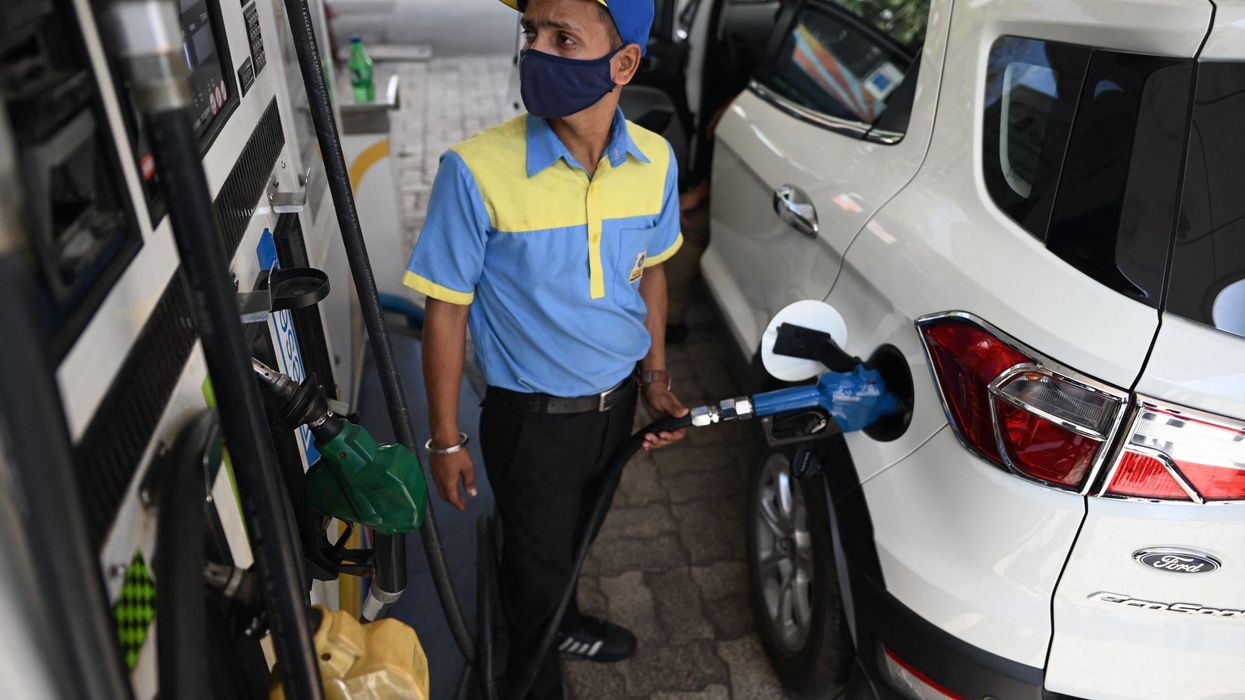INDIA’S road transport minister on Tuesday (12) said he will propose an additional 10 per cent tax on diesel vehicles and warned automakers of even higher levies to come to force them away from diesel-burners and cut fuel emissions and pollution.
Nitin Gadkari made the comments at the Society of Indian Automobile Manufacturers (SIAM) annual conference in New Delhi, where executives of Tata Motors, Mahindra and Mahindra, Maruti Suzuki and foreign carmakers like Mercedes and Volkswagen had gathered.
Gadkari said he will ask the finance minister later on Tuesday for an “additional 10 per cent” goods and services tax on diesel vehicles to tackle problems related to pollution.
India currently imposes a 28 per cent tax and additional so-called “cess” is levied depending on the vehicles’ engine capacity.
“Say bye to diesel soon, otherwise we will increase so much tax that it will become difficult for you to sell these vehicles,” Gadkari told the conference. “We have to leave petrol and diesel soon and walk on the new path of being pollution free ... There should be a diversification (by companies) as soon as possible,” he said in a warning to automakers.
Gadkari’s comments sparked widespread discussion among auto executives at the Delhi conference, with some describing the move to Reuters as a “bombshell” announcement. Mercedes India managing director, Santosh Iyer, said many customers still prefer diesel vehicles and any change in tax policies will lead to a shift in automakers’ “portfolio strategy”.
“We will need six-odd months to change our production planning processes but we can always vary and shift based on the demand,” he said. Pollution is a growing problem across India. Attempts to cut vehicular emissions, reduce fuel imports and curb stubble burning have not yielded great results in a country where the proposed coal power capacity is the highest after China.
The minister later wrote on social media platform X, formerly Twitter, the proposal to increase tax was not “currently under active consideration by the government”.
Shares of automakers Mahindra and Mahindra, Tata Motors and commercial vehicle maker, Ashok Leyland, dropped between 2.2 per cent and 2.5 per cent. The finance ministry did not immediately respond to a request for comment.
Gadkari has also issued warnings at past SIAM conferences. In 2017, Gadkari told auto executives they should move towards electric vehicles (EVs), saying: “I am going to do this, whether you like it or not. And I am not going to ask you. I will bulldoze it.”
India has in recent years promoted electric vehicle sales with tax incentives, though less than 2 per cent of India’s nearly 4 million in car sales last fiscal year were EVs. The government has said it wants EVs to make up 30 per cent of total car sales by 2030.
The number of diesel vehicles in the world’s third-largest car market has fallen to 18 per cent from 50 per cent a decade ago, Gadkari said, warning that just like India pushed through stricter fuel emission norms against opposition from the industry, it will similarly drive up taxes to push out diesel vehicles.
Veejay Ram Nakra, chief executive officer for the automotive division of Mahindra and Mahindra, told TV news channel ET Now that any change in duty structure “will certainly have an impact on volume of sales.”
Ashok Leyland Chief Executive Shenu Agarwal told CNBC-TV18 that instead of taxation, more incentives should be given on electric, hydrogen and other alternate fuels.
About 962,000 commercial vehicles were sold in India from April 2022 to March 2023, up 34 per cent from a year earlier, while passenger vehicles sales rose 27 per cent to 3.9 million for the period.
“If implemented, this would be a huge negative for commercial vehicle makers, potentially bringing degrowth to the segment,” said Amit Hiranandani, analyst at brokerage SMIFS.




